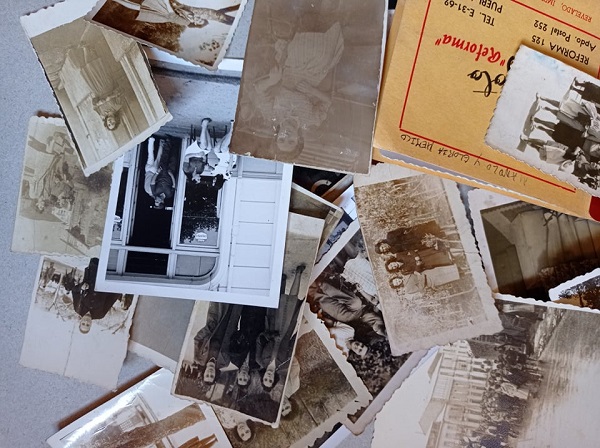WEDNESDAY 1 DECEMBER 18:00 - 20:30
ANA POL AND MARÍA ROSÓN
Exile is an experience that, due to its radical nature, is abrupt about relocation, uprooting and dispossession. The exiled person must leave their space and reconfigure their new position. In this discussion, we will revert to this figure in order to explore matters of spatiality as they affect corporeality, particularly regarding the idea that space and body are not two separate notions and how they affect each other’s displacement. For this purpose, we will use phenomenological perspectives that interpret space from feminist standpoints and intersect them with questions that stem from artistic practices. We will also observe how language is imbued with spatial terminology and how that shapes it – in an insidious manner – the way in which we interact with the world. Like a spell, like something that increases over time, out of control, haunted.
Ana Pol holds a degree in Fine Arts and Social and Cultural Anthropology, and a PhD in Fine Arts: Her thesis explored “Poetics based on trauma and affections. Articulations of other [auto]biographical voices between wars”. Since 2006, she has worked as a professor at the University of Salamanca’s Fine Arts Faculty in the field of Sculpture. In her research, she tackles subjects such as trauma and affections through performative and textual practices. She has become increasingly interested in working this interwoven body-text through movement, or more precisely through perceptual-kinetic-sensitive processes and devices that affect our subjectivities.
María Rosón is a Juan de la Cierva postdoctoral researcher at the Complutense University of Madrid’s Art History Department.
After obtaining her PhD from the Universidad Autónoma de Madrid she worked as a researcher at the Reina Sofía Museum Collections Department and at the University of Valencia’s Language Theory and Communication Sciences Department. Her lines of research focus on visual and material culture, mainly 20th century Spanish, intersected with feminist/gender studies.

Ana Pol, 2021